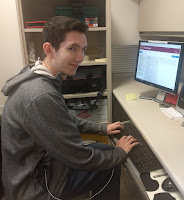presentation proposals highlighting experiences introducing local history and genealogy research/materials to K-12 student
The Local History and Genealogy Section of the International Federation of Library Associations and Institutions (IFLA) welcomes submissions of presentation proposals highlighting experiences introducing local history and genealogy research/materials to K-12 students. The planning committee is especially interested in submissions relating to the theme of the IFLA World Library Information Congress – Inspire, Engage, Enable, Connect. This event will be held virtually on August 16 at 8:00 am CDT. Submission Guidelines This call is open to IFLA members, non-members, and students. Proposals for 15-minute presentations in English should include a 200-word abstract. Joint proposals are welcome. Please submit your proposals online at https://forms.office.com/r/SrHw2M8FbW by June 19. Questions? Please contact Jennifer Brannock at Jennifer.Brannock@usm.edu.





